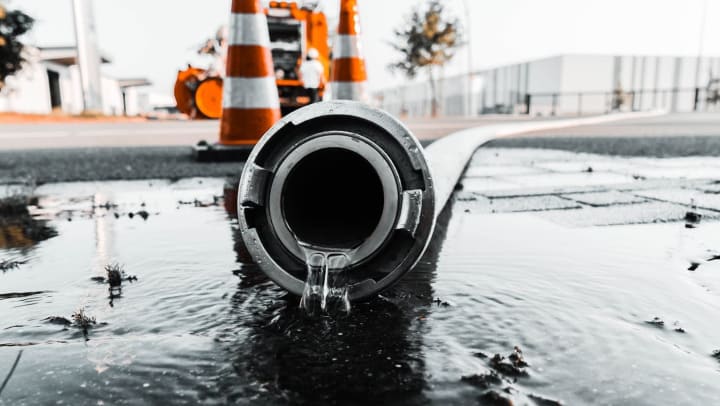A house fire is a devastating event that can strike at any time, causing significant property damage and putting lives at risk. Safeguarding your home against potential fire hazards is essential to ensuring the safety and well-being of your loved ones. Below are some dangers you should be aware of to prevent fires in your home.
Preventing Fires in Your Home
Cooking Safety: Unattended cooking is the leading cause of house fires and home injuries. It is vital that you stay alert and in the kitchen while cooking. Have a “kid-free zone” of at least 3 feet around the stoves and areas where food is prepared. Using ovens for storage of kitchen wear is a fire hazard when items are forgotten about and the oven is turned on for use. Never store any items in the oven due to the potential for a fire to occur. Outdoor cooking becomes more popular in the warmer months, and mishandling charcoal and propane grills can lead to dangerous fires. Outdoor cooking and grilling with a barbeque should be kept away from the building at all times. Additionally there should be a safe space of at least 10 feet away from any structure. Keep anything that can catch fire, including oven mitts, wooden utensils, food packaging, towels, or curtains, away from the stovetop or grill.
Appliance and Electrical Fire Safety: According to the U.S. Fire Administration, failure to clean the lint filter in a dryer was the leading factor in igniting clothes dryer fire in the home. Do not use the dryer without the lint filter, and clean the lint filter before and after each use. Ensure large appliances, such as washing machines and refrigerators, are plugged directly into the wall and not into an extension cord. Do not overload outlets, and be sure all plugs are fully inserted into the socket. Home electrical fires peak between midnight and 8 AM. Before turning in for the night, unplug all small appliances not in use and turn off all heat-producing devices.
Candles and Tiki Torches: While candles and tiki torches enhance the ambiance of housing spaces, they can be fire hazards if not handled cautiously. Never leave a burning candle or tiki torch unattended. Wind gusts can easily topple lit tiki torches and ignite nearby materials. Blow out candles when you leave a room or home or go to bed. Consider using battery-operated flameless candles, which look, smell, and feel like real candles. Tiki torches should only be used outdoors as directed.
Holiday Fire Safety: Celebrating holidays and decorating is a long-standing tradition for many families. According to the National Fire Prevention Association, almost one-third of home Christmas tree fires are caused by electrical problems. Prevent this by checking holiday lights before you put them up and watering your Christmas tree daily. Throw away any holiday lights with frayed or pinched wires.
In the summer months, some regions experience hot and dry weather, which increases the risk of fires. The rapid evaporation of moisture leaves vegetation and soil susceptible to becoming fuel for fires. Never leave an open fire unattended. Turn off or ensure fires are fully extinguished before you leave your backyard. Clean your grill after each use, and place your coals in a metal can with a lid once they are extinguished. Store matches and lighters out of children’s sight and reach. Do not store grills or fire pits in your home or storage shed.
Fireworks are utilized by many in the summer months in conjunction with fourth of July celebrations. Many fires occur from fireworks that are not completely extinguished after use. Fireworks should be soaked thoroughly overnight before disposing of in any way. Please check your local ordinances on use of fireworks.
Protection From the Unexpected
It is estimated that the replacement cost of furniture in a typical rental home is $6,000, which is why Liberty Military Housing encourages (and requires at some installations) all residents to obtain Renter’s Insurance anytime they rent a house or apartment. Renters Insurance protects you and your personal belongings from unplanned damage or loss.
A typical renters insurance policy provides low-cost coverage for you and your belongings for fire, smoke damage, theft, windstorm, water damage, and visitor injuries. Renter’s Insurance costs an average of $173/year for $15,000 of personal property coverage or about $14 monthly. Take a minute and think about all of your belongings. What would it cost if you had to replace it all? You may be surprised how quickly the costs add up. We strongly recommend purchasing renter’s insurance to protect you and your family from a loss.
Be a Prepared Family!
Did you know you could have less than two minutes to escape a home fire once the smoke alarm sounds? (source: usfa.fema.gov). Creating a family escape plan and ensuring every family member knows their role if a fire occurs can minimize the risk of injury or death. Include designated escape routes and meeting points when communicating your family’s plan. Practice the escape plan with your family regularly, and appoint family members to assist children, seniors, or anyone needing help during an escape. Click here for more information to create your family escape plan.
Preventing house fires requires awareness, caution, and proactive measures. By following the fire safety tips mentioned above and creating a well-thought-out escape plan, Liberty Military Housing residents can significantly reduce the risk of fire-related incidents and protect their loved ones and property. Remember, even with the best prevention practices; accidents can still happen, so obtaining Renter's Insurance is strongly encouraged.
Stay vigilant and prioritize fire safety always!


